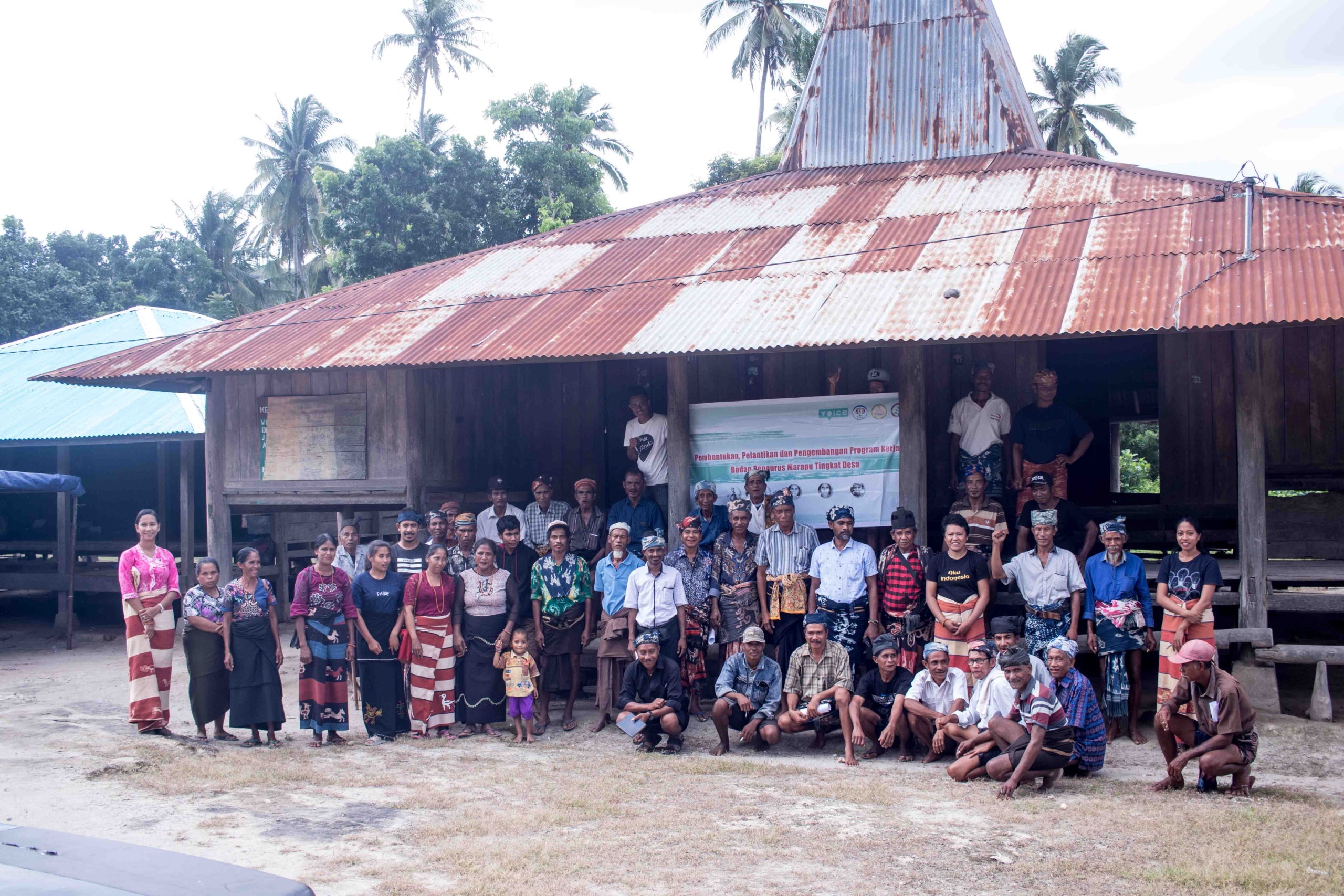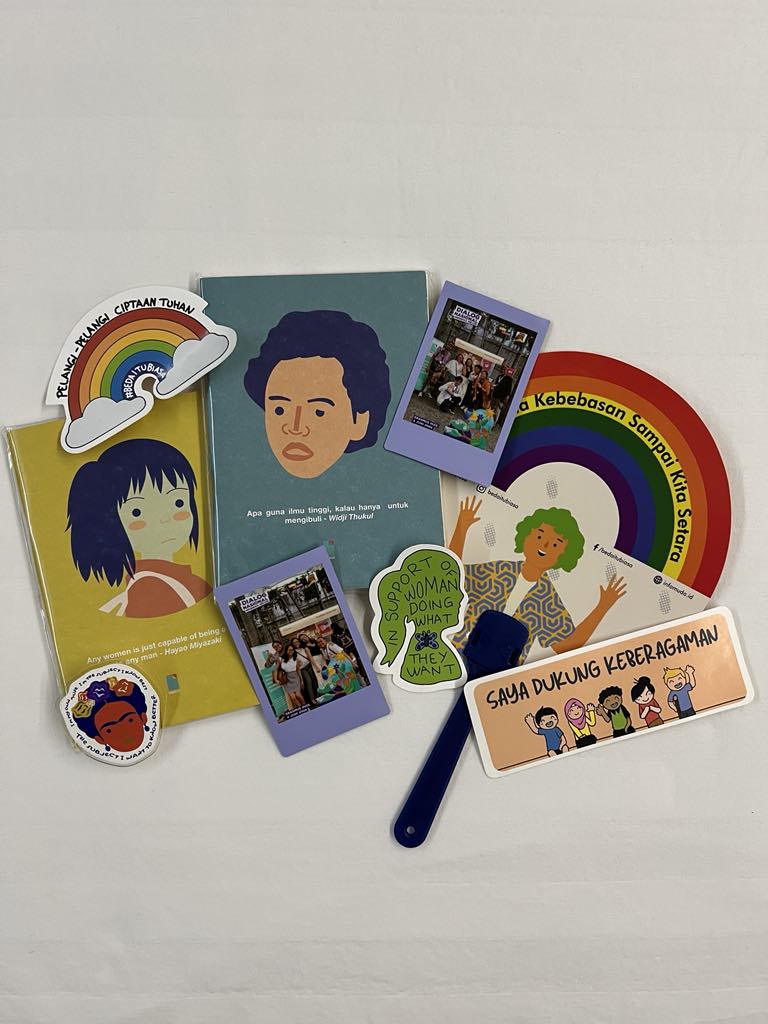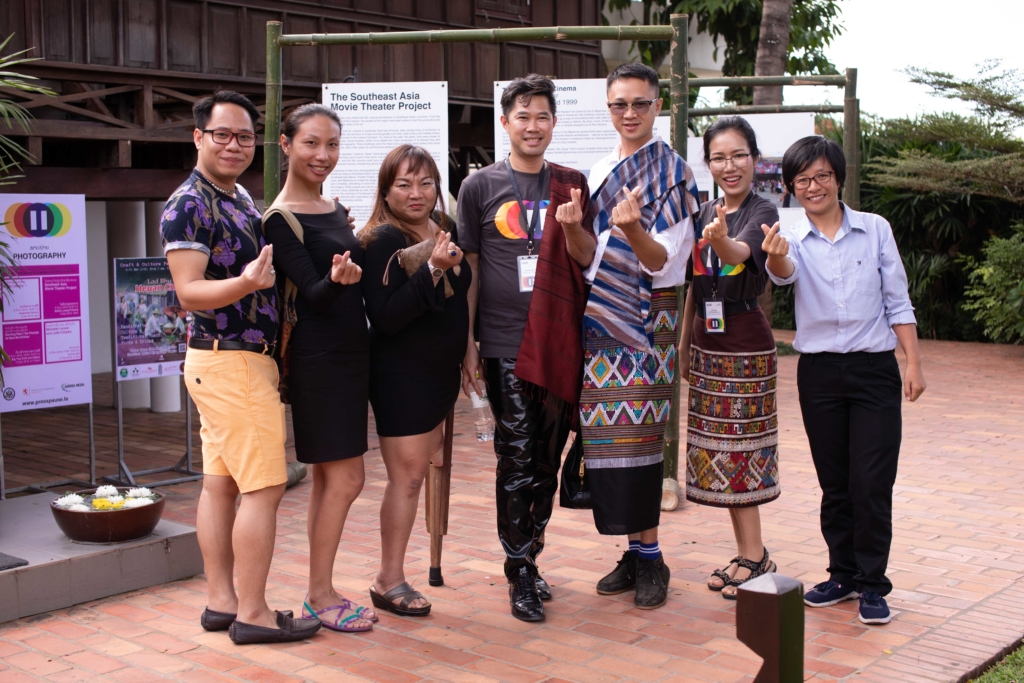Preserving Marapu Culture and traditions through song
The Marapu people of East Sumba have a vibrant tradition of music, poetry, craftsmanship and sacred rituals. This culture is facing a serious threat of extinction. This culture was kept alive and preserved through the generations by being handed over from one age group to the next. These very important cultural expressive forms face a threat of extinction as a result of the disruption of the handing over systems. The canon of many traditional Marapu music genres is now only known by the elderly members of community and is not being transmitted to younger generations. This means that once the elders exit the stage the culture will leave with them. The realization that Marapu musical genres are disappearing fast and many more expressive forms face the same fate unless something is done to revitalize them before the generation of the bearers of traditional culture transition into history. This is the urgency that motivates Jekshon.
Jekshon (21) is a spokesperson for the traditional rituals of Marapu, the indigenous belief system from East Sumba. He is also a singer, musician, writer, builder of traditional musical instrument, builder of traditional houses, a teacher, and a farmer. Jekshon is actively involved in ensuring that the traditions and culture of the Marapu people do not fade into history and his involvement in the *** project is the actualization of his dream, and the wishes of the Marapu people
Thirteen genres of traditional music as well as five distinct types of Marapu rituals were identified during the *** project with Sumba Integrated Development. Twenty-seven audio/visual presentations from the socialization with the local Marapu leaders, cultural experts, ritual speakers, local musicians, educators, and the wider community were recorded and documented. By taking advantage of modern technology these recordings are ready for preservation and transmission to the next generation.
Through the efforst of artists like Jekshon the culture is not only preserved, it is made relevant and socially useful as was demonstrated during the recent Covid-19 pandemic. In 2021, as the Covid-19 pandemic spread to Sumba, Jekshon and a popular female singer-songwriter, Kahi Ata Ratu composed some songs in their indigenous language and using traditional poetic couplets characteristic of songs known in East Sumba as Lawiti Ludu. The lyrics speak about maintaining health and well-being during the pandemic and while educating the public to maintain Covid vigilance also preserving the culture. In this way, in the midst of an ongoing global health crisis, these traditional-genre, indigenous-language songs are serving as a way to disseminate to Marapu and non-Marapu communities the health recommendations of the WHO, through a cultural format and language appropriate to the Marapu people. This use of traditional East Sumbanese song by indigenous artists illustrates the vital role that culture can play in timely and culturally appropriate responses to issues that affect health and well-being. Jackshon says,
“I wrote this song, ‘Hadangu Kata Pahada Belinya Na Ngguti Na Kalaratunda’as an invitation to develop Sumba’s almost extinct culture. We must not allow Sumba culture to become extinct. We, as the next generation, set an example by developing culture, including through music, through customs, rituals and cultural arts.”
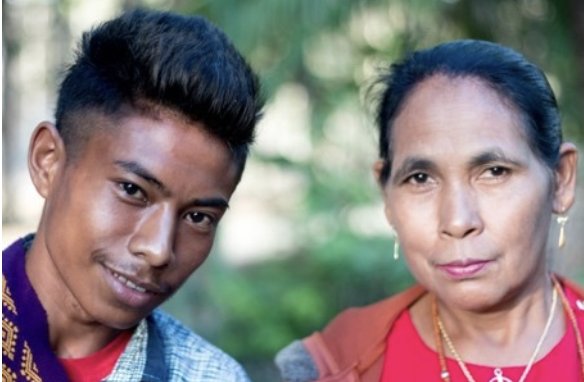
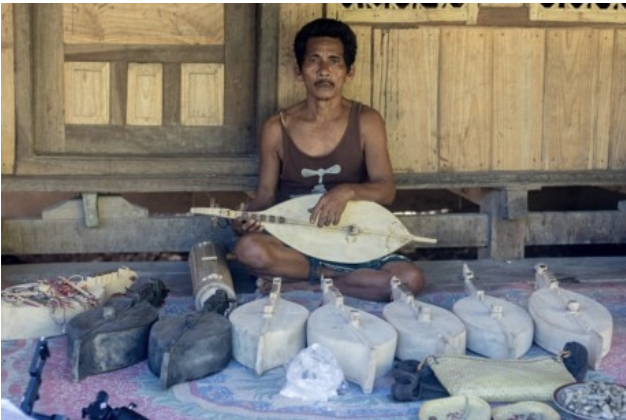
The “East Sumbanese Intangible Cultural Assets Audio Visual Archive” will also form a key resource for advocacy and the development of educational programs about Marapu culture. In addition to this the online version of this archive is shared widely within Sumba, Indonesia and worldwide thereby raising awareness of the rich intangible culture of Sumba. This dissemination will likely have an indirect economic benefit for Sumba and Sumbanese musicians and artists by promoting it as a destination for sustainable cultural tourism. In order to increase access to those villages with no/poor internet access the recordings have been rendered on flash disks. The flash disk version of the archive expands on the online version and allows sharing among a greater number of persons. The flash disk archive includes additional audio recordings from previous East Sumbanese revival programs (Ciptamedia), songs collected from various Sumbanese handphone/digital collections, songs digitized from old cassette field recordings of Umbu Kabubu Palindima (another senior key figure involved in promoting cultural development programs) during program workshops, and a rare set of 1960s field recordings recorded by anthropologist Monni Adams. These important archives were repatriated as a result of advocacy with the Wesleyan Archive in the United States. Books and papers published in both Indonesian and English, and Sumbanese films are also included in the archive.
By supporting traditional music instrument, it has allowed Marapu people to re-introduce instrument such as the Gunggi (a very rare mouth harp) to areas where, according to the data we collected in the Music Vitality and Endangerment Framework survey they had almost entirely disappeared. Simple support measures for basic infrastructure (providing instruments, Audio-visual archives, books on Marapu culture) have had both practical outcomes (promoting teacher/student relationships, intergenerational transmission) and have stimulated community cultural pride and creativity. Music that has not been performed in many years is now being practiced and new forms of music (extensions of traditional forms) and ensembles have begun to emerge as a result of collaborations between key cultural figures supported by this program.

